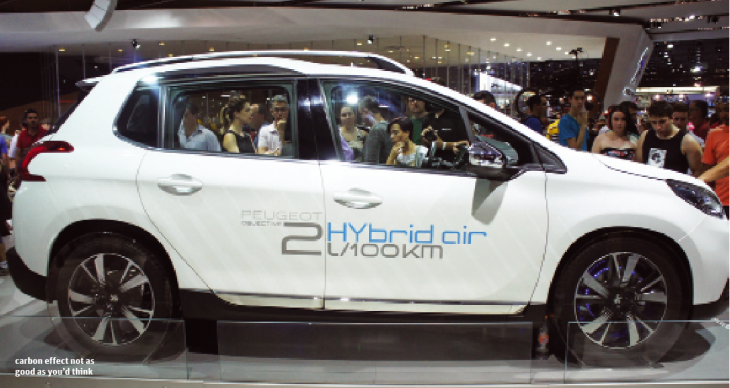The head of the Society for the Motor Industry in Ireland (SIMI) recently announced that the policy decision to introduce 131, 132, 141 etc. car registration periods had been a great success. I suppose it depends on how you define success, but for him and his ‘industry’ (they should really be called the Confederation of Car Salesmen, but perhaps the acronym wouldn’t work) success could be measured in new car sales. Making people advertise the age of their cars on the vehicle encourages the more insecure among us to change cars more often than is perhaps necessary.
Quite why the Irish government should be in the business of encouraging new car sales isn’t clear, but most of the ways it approaches transport and the motor business imply it wants more new car sales. A few years ago Ireland introduced a car scrappage scheme which encouraged people to dump their functioning ten-year-old car and get a shiny new car with a €2,000 subsidy from the taxpayer. An ‘07 Toyota Avensis with a two-litre engine will pay €710 in motor tax, where a new Porsche Cayenne might pay just €280.
Taxes are important policy instruments. They incentivise certain behaviours over others. Think of the impact our high income tax has compared to taxes paid on income earned from speculating on property. Many people earn large amounts on this, but pay proportionately less tax than those who have to work for a living.
These car policies may be in place because the various car taxes bring in a lot of income. VAT and Vehicle Registration Tax (VRT) certainly yield a bounty for the government from new cars.
But if it’s just about money, taking old, inefficient cars off the road doesn’t seem a great idea. The state also takes a lot in from old cars; motor tax alone generates over €1bn a year, and we see the state gets far more from old small cars than new big ones. As a result the take on motor tax has been steadily declining, so the government will need to find that money somewhere else.
And if it is about income, surely we’d be better off having that extra income spent on stuff that generates extra economic activity in Ireland rather than in Germany, Japan or Korea? In their suite of policies successive governments seem hell bent on exporting large amounts of cash.
It can’t be equity either. Taxing someone who can only afford a ten-year-old Nissan Micra more than the guy in the Range Rover doesn’t seem fair, especially given the symbolism of, and space taken by, the bigger car. The new Range Rover is simply not paying its way.
So presumably the policies are for environmental reasons. After all the new Range Rover is much more fuel-efficient than the old Nissan Micra. By measuring and taxing cars on the basis of their carbon emissions we are encouraging the use of more fuel-econmic vehicles, and therefore using less carbon. And it was introduced by a Green Party minister (albeit as part of a broader EU policy).
However, in many ways the policies worked. With great speed car manufacturers were able to increase the efficiency of their vehicles. Most new cars are more fuel-efficient than hybrids introduced some years ago (again attracting significant taxpayer subsidies).
So should we be thankful for these policies, and more importantly should we keep them? Well, no. In other areas of environmental policy we are encouraged to reduce, reuse and recycle. In the car industry we are discouraged from all three. Lower motor taxes mean we can afford bigger cars. Rather than re-use (or recycle) our old cars we are incentivised to scrap them (with no check on whether this is done efficiently, such as reusing the car for parts).
This would seem sensible if new cars were carbon neutral, but they aren’t (not even the fetishised electric ones). New cars take a lot of carbon (and other embodied energy) to build. It’s hard to measure but Mike Berners-Lee, an author on sustainability, who has tried to measure the carbon footprint of nearly everything, shows that the production of new cars is really polluting.
This is hardly surprising given their complexity. Cars are now replete with electronic gadgets. These rely on difficult-to-extract minerals, ores, oil etc. Car-manufacturing is not a very green activity.

Berners-Lee estimates that a new car causes about 720kg for each €1,200 spent. A medium-spec Ford Mondeo will have left a footprint of 17 tonnes before it drives a kilometre. A top-of-the-range Land Rover will use 35 tonnes of carbon.
Even though they are more efficient than their older replacements you will need to drive a lot before there is any environmental benefit to replacing even an old car. Certainly if you’re an average driver (about 12,000km a year) keeping an old car for five extra years will be better for the environment than replacing it. A new Volkswagen Golf will take about 14 tonnes of CO2 to manufacture and then use about eight more over five years. An older Golf might use 11 tonnes over the same five years, about half the impact.
Electric cars, also subject of generous subsidies, don’t work either. Their poor battery life means they don’t get used much. Look at the second-hand market in electric cars and you’ll see just how little. Per kilometre driven they could be the most polluting of all. Their only viable future may be long-term.
Policymakers sometimes don’t understand the concept of sunk costs, but drivers do. Sunk costs are monies that have been spent, and no change in your behaviour can recover them. VRT and road tax are sunk costs. Once you’ve paid for the new car, or your annual tax then you’ve no incentive to walk or cycle rather than drive, especially if your car is very fuel-efficient.
By making road tax high on old cars we encourage the consumption of huge amounts of carbon through the purchase of new cars. A more environmentally-friendly way might be to leave the less-efficient car on the road where the driver will pay more per use through fuel costs. A person with an old car that isn’t driven very often will be made better off than the regular driver of the newer car. We should also add more road-use charges to the mix. Dublin could probably benefit from a congestion charge, and from out-of-town shopping centres with revenue raising parking charges.
The reason for the perverse incentives of car tax is that we measure (and charge) carbon production rather than carbon consumption. We don’t count the carbon cost of consuming a new car produced in Japan as Irish even if it will only ever be used in Ireland, and presumably wouldn’t have been produced if there was no demand for it here. The Chinese, who produce so much of what we consume, might be more inclined to enter emissions limiting agreements if it were the consumers rather than they who were charged.
Well-intended policies often produce bad outcomes. But they have an unfortunate habit of being kept for long after we realised they don’t work. •
Dr Eoin O’Malley is senior lecturer in public policy at the School of Law and Government, Dublin City University.
